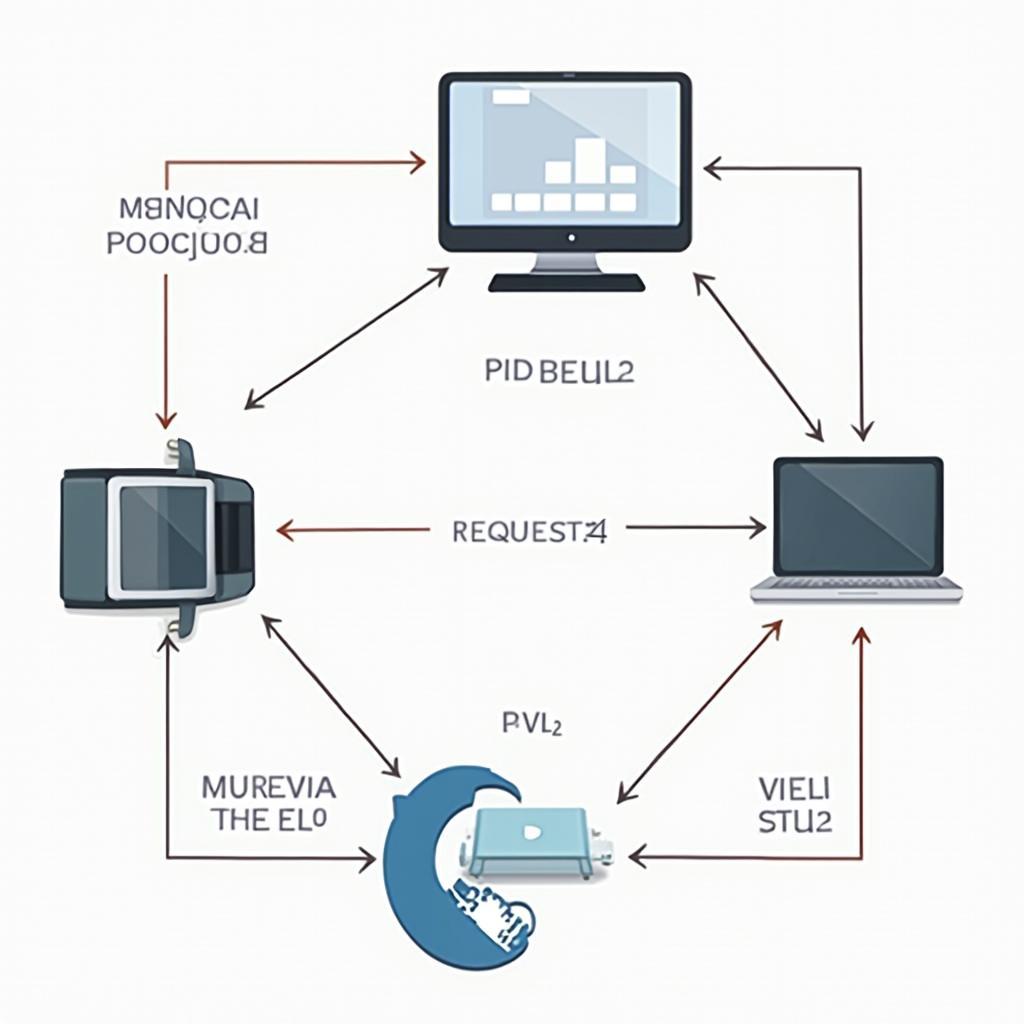OBD2 PIDs are the key to unlocking your car’s secrets. These standardized codes allow OBD2 scanners to access and interpret a wealth of data from your vehicle’s onboard computer, providing valuable insights into its performance and health. But what exactly are these mysterious PIDs, and how do they work? Let’s dive in.
Decoding the Mystery: OBD2 PIDs Explained
A PID, or Parameter ID, is a hexadecimal code that corresponds to a specific piece of data stored within your car’s Engine Control Unit (ECU). Think of it as a secret language your OBD2 scanner uses to communicate with the ECU and retrieve information. Each PID represents a different parameter, ranging from engine RPM and coolant temperature to fuel system status and emissions data. By requesting specific PIDs, your OBD2 scanner can access a wide array of diagnostic information, helping you identify potential problems and optimize your vehicle’s performance. Want to know your car’s speed? There’s a PID for that. Curious about the oxygen sensor readings? There’s a PID for that too.
How OBD2 PIDs Work
When you plug your OBD2 scanner into your car’s diagnostic port, it sends requests to the ECU using these standardized PID codes. The ECU responds by providing the requested data, which is then displayed on the scanner’s screen in a human-readable format.  OBD2 PID Data Flow Diagram This allows you to monitor various aspects of your car’s operation in real-time and identify potential issues before they become major problems.
OBD2 PID Data Flow Diagram This allows you to monitor various aspects of your car’s operation in real-time and identify potential issues before they become major problems.
Why are OBD2 PIDs Important?
OBD2 PIDs play a crucial role in vehicle diagnostics and maintenance. They provide a standardized way to access critical information about your car’s performance, emissions, and overall health. For car owners and mechanics, lexus obd2 pid offers specific insights for this brand. Here’s why they’re so important:
- Troubleshooting: PIDs help pinpoint the root cause of engine problems, making diagnostics faster and more efficient.
- Maintenance: By monitoring key parameters, PIDs allow for preventative maintenance, extending the life of your vehicle.
- Performance Tuning: PIDs provide valuable data for optimizing engine performance and fuel efficiency.
- Emissions Monitoring: PIDs help ensure your vehicle meets emission standards.
Common OBD2 PIDs and Their Uses
While there are hundreds of OBD2 PIDs, some are more commonly used than others. Here are a few examples:
- Engine Speed (RPM): PID 010C
- Vehicle Speed: PID 010D
- Coolant Temperature: PID 0105
- Oxygen Sensor Readings: PID 0113
- Fuel System Status: PID 0103
Knowing these common PIDs can be particularly helpful for specific vehicles, like understanding the obd2 pid door function for different car models.
Advanced OBD2 PID Usage
Beyond basic diagnostics, OBD2 PIDs can also be used for more advanced applications, such as:
- Data Logging: Recording PID data over time to track performance trends and identify intermittent issues.
- Custom Tuning: Modifying ECU parameters based on PID data to optimize engine performance.
- Emission Testing: Verifying compliance with emissions regulations.
Knowing the intricacies of OBD2 PIDs can be highly beneficial, particularly if you are interested in aspects like the obd2 pids dodge ram turn signal.
What if my car doesn’t support a specific PID?
Not all cars support every PID. The availability of specific PIDs depends on the vehicle’s make, model, and year. You might find detailed information on this on resources like obd2 on mazda 3 pid. If your car doesn’t support a particular PID, it simply means the ECU doesn’t store or provide that specific data.
Conclusion
OBD2 PIDs are essential for understanding and diagnosing your vehicle’s performance. These codes provide a standardized way to access a wealth of information, empowering car owners and mechanics alike. By understanding what an OBD2 PID is and how it works, you can unlock the secrets of your car’s inner workings and keep it running smoothly. For specific models, you can look into resources like obd2 pid list toyota tire pressure for more detailed information.
FAQ
- What does OBD2 stand for? On-Board Diagnostics II
- Are all OBD2 PIDs the same? No, they vary depending on the vehicle.
- Can I use any OBD2 scanner to read PIDs? Most scanners can read standard PIDs.
- How many OBD2 PIDs are there? Hundreds, and they are constantly evolving.
- Where can I find a list of OBD2 PIDs? Various online resources and service manuals provide PID lists.
- Do I need special software to interpret OBD2 PIDs? Most OBD2 scanners interpret the data for you.
- Can OBD2 PIDs be used to clear trouble codes? Yes, some scanners offer this functionality.
Need help? Contact us via WhatsApp: +1(641)206-8880, Email: [email protected] or visit us at 789 Elm Street, San Francisco, CA 94102, USA. We offer 24/7 customer support.
